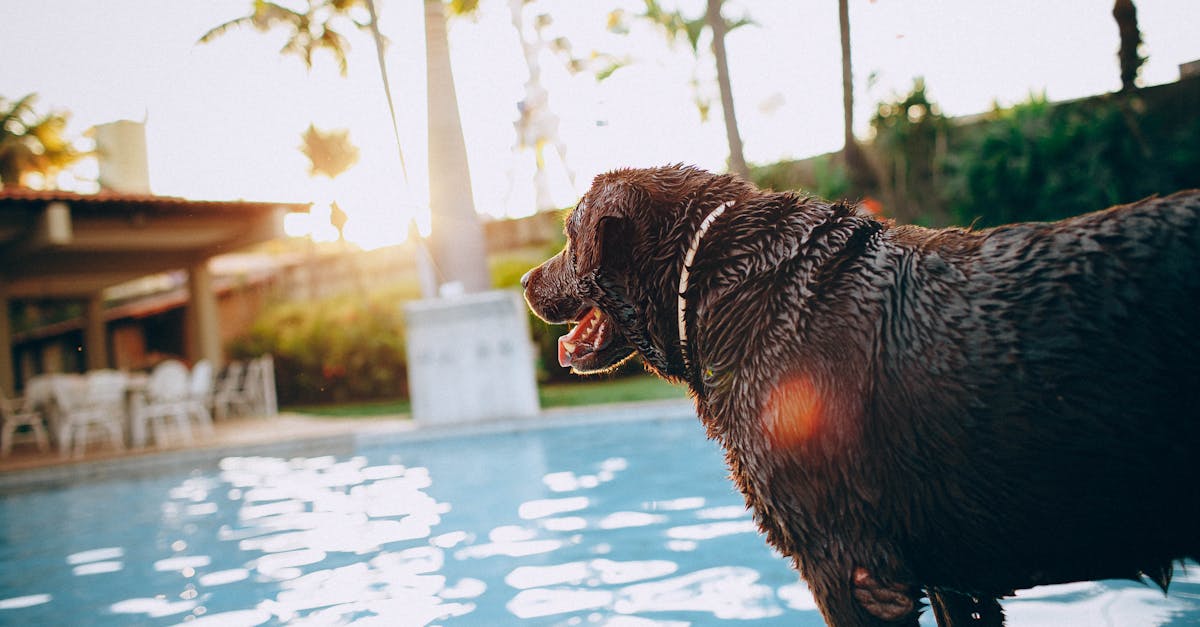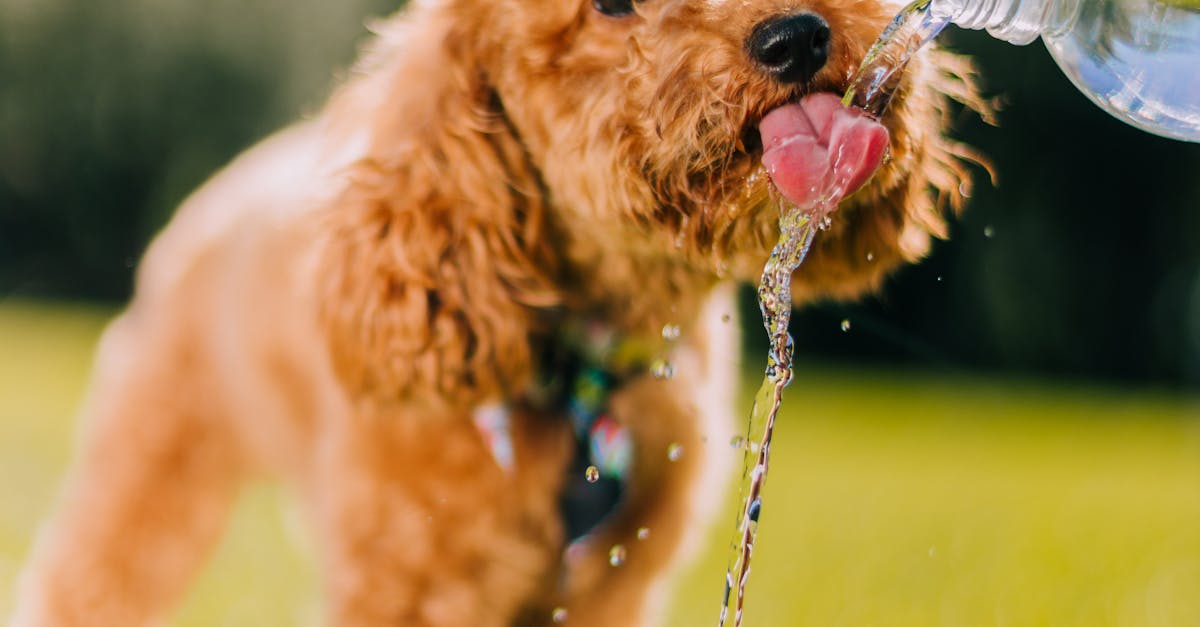Why Fresh Water Matters for Your Pet’s Health
Every pet owner cares deeply about the well-being of their furry, feathered, or scaly friends. While diet, exercise, and regular veterinary check-ups are often emphasized, one critical component can sometimes be overlooked: fresh water. Ensuring that your pets have access to clean, fresh water is vital for their overall health and happiness.
The Life-Sustaining Role of Water
Water is essential for all living beings. In pets, it contributes to a range of life-sustaining functions:
- Hydration: Just like humans, pets need water to stay hydrated. Dehydration can lead to severe health issues, including kidney problems and urinary tract infections.
- Regulation of Body Temperature: Pets cool down through panting, drinking, and a very limited amount of sweating through their paws. Fresh water helps them maintain a stable body temperature.
- Digestion: Adequate water intake is crucial for proper digestion. It helps in breaking down food, absorbing nutrients, and flushing out waste.
- Circulatory System: Water is a primary component of blood, which carries oxygen and nutrients to cells throughout the body.
Common Challenges and How to Overcome Them
Problem: Forgetting to Refill the Water Bowl
It’s not uncommon for pet owners to forget to refill their pets’ water bowls. A busy schedule or simple oversight can lead to empty bowls, especially during hot weather or after vigorous activities.
Solution: Automatic Water Dispensers
Investing in an automatic water dispenser ensures that your pet always has access to fresh water. These systems are designed to keep water clean and flowing, reducing the risk of stagnation and contamination.
Problem: Contaminated Water Sources
Water bowls can quickly become breeding grounds for bacteria, especially if they are left out for long periods.
Solution: Regular Cleaning
Make it a habit to clean your pet’s water bowl at least once a day. Use soap and water, and rinse thoroughly to prevent any soap residue. Stainless steel or ceramic bowls are often easier to clean and less prone to bacterial growth compared to plastic bowls.
Problem: Picky Drinkers
Some pets are simply fussy drinkers. They may avoid drinking water that doesn’t smell or taste right to them, which can be a result of minerals in tap water or a dirty bowl.
Solution: Filtered Water
Consider using filtered water for your pets, just as you might for yourself. Water filters can remove impurities that affect taste and smell, making it more appealing for your pet. Additionally, pets may enjoy water fountains that keep water circulating and oxygenated.
Problem: Limited Access to Water
Pets that spend a lot of time outdoors or in different areas of the house might not always have access to water.
Solution: Multiple Water Stations
Set up multiple water stations around your home and yard. This ensures that your pet can easily find and access water no matter where they are.
The Benefits of Keeping Your Pet Hydrated
Improved Health and Longevity
Keeping your pet well-hydrated can lead to a longer, healthier life. Proper hydration supports kidney function, reduces the risk of urinary tract infections, and helps in maintaining a healthy coat and skin.
Enhanced Energy and Activity Levels
A hydrated pet is a happy and active pet. Adequate water intake boosts energy levels, allowing your pet to stay active and playful. This is especially important for working or highly active pets, such as service dogs or animals involved in agility sports.
Better Disease Management
Water plays a crucial role in managing chronic illnesses like diabetes and kidney disease. For pets with these conditions, increased water intake can help flush out toxins and regulate important bodily functions.
Weight Management
Proper hydration can assist in managing your pet’s weight. Water makes pets feel full, reducing the likelihood of overeating. Additionally, it aids in digestion and waste elimination, which are critical for maintaining a healthy weight.
Recognizing Signs of Dehydration
It’s crucial to recognize the signs of dehydration in pets so that you can take immediate action:
- Dry Nose and Gums: A hydrated pet should have a moist nose and gums. Dryness can be an early sign of dehydration.
- Lethargy: Dehydrated pets often become less active and might sleep more than usual.
- Sunken Eyes: Sunken or dull eyes are another indicator of dehydration.
- Loss of Appetite: Dehydration can make pets lose interest in food.
- Skin Elasticity: Gently pinch your pet’s skin and release. If it doesn’t snap back quickly, your pet might be dehydrated.
Quick Tips for Immediate Rehydration
- Offer Electrolyte Solutions: Pedialyte (unflavored) can be mixed with water in small amounts to help rehydrate pets.
- Visit the Veterinarian: Severe dehydration requires professional treatment. Intravenous fluids might be needed to quickly replenish lost fluids.
Establishing a Routine
Morning Routine
Start the day by checking and refilling water bowls. Cleaning the bowls every morning ensures that your pet has fresh water to start the day.
Midday Check
If you’re home, use your lunch break to check the water bowls again. This is especially important in warmer climates or during seasons when your pet might be more active.
Evening Routine
Before going to bed, refill and clean the water bowls again. This ensures that your pet has access to fresh water throughout the night.
Regular Monitoring
Keep an eye on your pet’s water consumption. Any noticeable changes should prompt a quick vet check to rule out health issues.
Final Thoughts: A Simple Yet Crucial Habit
Ensuring that your pet has access to clean, fresh water might seem like a small act, but it has profound implications for their health and well-being. A well-hydrated pet is more likely to be happy, active, and live a full life. Taking the time to establish a routine and invest in reliable water solutions can make all the difference.
Action Steps for Pet Owners
- Invest in Quality Water Bowls and Dispensers: Choose materials like stainless steel or ceramic that are easier to clean.
- Monitor Your Pet’s Water Intake: Keep track of how much water your pet drinks daily.
- Regular Vet Visits: A vet can provide guidance tailored to your pet’s specific needs, ensuring they stay healthy and hydrated.
By making fresh water a priority, you’re not just meeting a basic need; you’re taking a proactive step in preserving and enhancing your pet’s quality of life. 🌊🐾
For more information on pet hydration, check out this useful guide on pet hydration.













